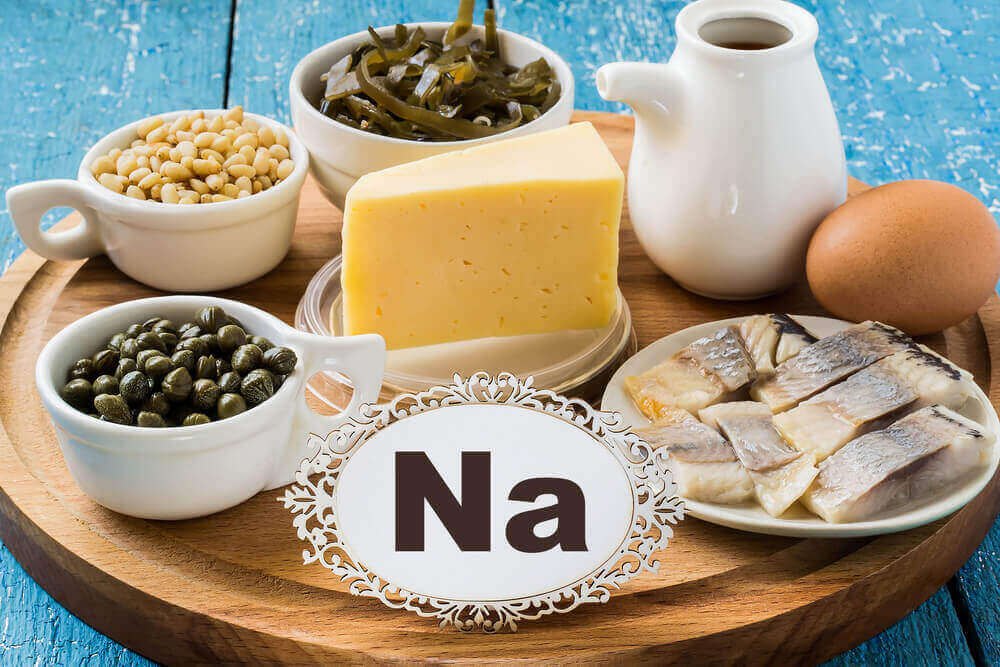Diet and Lupus: What to Eat and What to Avoid

People with lupus should eat a healthy diet and control their weight to prevent cardiovascular disease, reduce inflammatory factors, and improve their immune systems. Find out more about diet and lupus in the following article.
Nutrition plays a very important role in preventing, treating, and controlling diseases. That’s why if you have lupus or know someone who does, it’s very important to know a set of guidelines for taking care of your diet.
In any case, even if you haven’t developed this disease, don’t neglect your dietary habits. That way, you can reduce the incidence of this and many other complex pathologies that can condition your lifestyle.
Read on to find out what they are!
What is Lupus?
Systemic lupus erythematosus is an autoimmune disease of unknown origin where the body doesn’t recognize infectious agents. Therefore, it attacks itself. It occurs with outbreaks that can be mild or severe depending on the person. As a systemic disease, it produces symptoms in different tissues of the human body.
Also, it can be associated with diseases such as osteoporosis, kidney damage, diabetes, hypertension, and cardiovascular disease.
Therefore, people with lupus need to watch their diet and make favorable changes in their habits. This will allow them to improve their quality of life and avoid contributing to the development of these collateral conditions.
How does diet affect lupus?
It’s important to know that some medications to treat this disease produce an increase in appetite that translates into weight gain.
Glucocorticoids interfere with the absorption of calcium, zinc, potassium, vitamins B6, C, and D, producing muscle loss and affecting normal blood sugar balance. As a result, there’s an increase in fat deposits in the body.
Conversely, there may also be weight loss or decreased appetite and gastrointestinal discomforts such as heartburn, stomach upset, nausea, vomiting, or painful mouth sores.
To avoid protein losses, it’s important to monitor protein intake. Ensuring the presence of these nutrients in the diet in adequate amounts reduces the risk of developing sarcopenia, according to research published in the journal Nutrition Research.
You may be interested in: Systemic Lupus Erythematosus: What Is It?
What do I have to eat in a lupus diet?

Vitamin D
Vitamin D is involved in regulating calcium in the body, so it’s responsible for maintaining strong bones and teeth. People with lupus need to avoid exposure to the sun, meaning they should consume it in their diet.
Also, as a study published in Autoimmunity Highlights notes, vitamin D deficiency may have negative effects on patients’ immune response.
This vitamin is present in fortified milk, egg yolk, liver, oily fish, and fish liver oils. It’s important to limit caffeine intake to no more than 3 cups of coffee, soft drinks, or tea with caffeine, as it decreases the absorption of vitamin D.
Folic Acid
Methotrexate for the treatment of lupus can cause folate deficiency. Therefore, experts recommend folic acid supplementation to protect against gastrointestinal disorders and maintain optimal red blood cell production.
For example, you can find folic acid in green leafy vegetables, parsley, legumes, and nuts. However, don’t consume the supplement with tea, as it prevents its absorption.
Calcium
As we mentioned above, people with lupus are at increased risk for osteoporosis, according to an article that appeared in the Current Health Sciences Journal. This is because this disease is mostly suffered by women and they often do little physical activity due to the pain and fatigue of the disease. It can also occur due to vitamin D deficiency, which, in turn, leads to calcium deficiency.
The foods with the highest concentration of calcium are dairy products, green leafy vegetables, chickpeas, almonds, sardines, and vegetable seeds. Patients should also take into account that they should consume it apart from coffee, alcohol, and tobacco. That’s because these substances make calcium absorption difficult.
Omega-3 fatty acids
Consuming omega-3 fatty acids has an anti-inflammatory effect, in addition to the impact on the control of dyslipidemias. Therefore, people with lupus should follow a diet high in this fatty acid, which we find in flaxseed oil, soybean oil, nuts, and oily fish.
What should I avoid?

Sodium, Diet, and Lupus
Excess salt is associated with hypertension and increased calcium excretion in the urine, which increases the risk of osteoporosis. So, the foods to avoid are:
- Stuffed meats
- Mature cheeses
- Canned foods
- Creams or soups in sachets
- Industrial and soy sauces
- Highly processed foods
You may be interested in: Four Things You Should Know about Low Sodium Diets
Calorie restriction
People with lupus should avoid strict dieting. This is because restricting calories in the diet accelerates autoimmune diseases. Therefore, the National Academy of Sciences recommends a diet of 1800-2000 kcal per day for sedentary people with lupus.
Alfalfa, diet, and lupus
People with lupus should avoid alfalfa since research has linked lupus outbreaks with it. In fact, patients may experience effects like muscle pain, fatigue, abnormal blood test results, changes in immune system function, and kidney problems.
Watch your diet to manage lupus
Finally, it’s essential to take into account that the nutritional needs may vary in each person, depending on their age and condition.
Therefore, although you should take these recommendations into account, it’s best to consult a health professional.
All cited sources were thoroughly reviewed by our team to ensure their quality, reliability, currency, and validity. The bibliography of this article was considered reliable and of academic or scientific accuracy.
- Naseeb MA., Volpe SL., Protein and exercise in the prevention of sarcopenia and aging. Nutr Res, 2017. 40: 1-20.
- Hassanalilou T., Khalili L., Ghavamzadeh S., Shokri A., et al., Role of vitamin D deficiency in systemic lupus erythematosus incidence and aggravation. Auto Immun Highlights, 2018.
- Barbulescu A., Vreju F., Criveanu C., Rosu A., et al., Osteoporosis in systemic lupus erythematosus correlations with disease activity and organ damage. Curr Health Sci J, 2015.
This text is provided for informational purposes only and does not replace consultation with a professional. If in doubt, consult your specialist.









